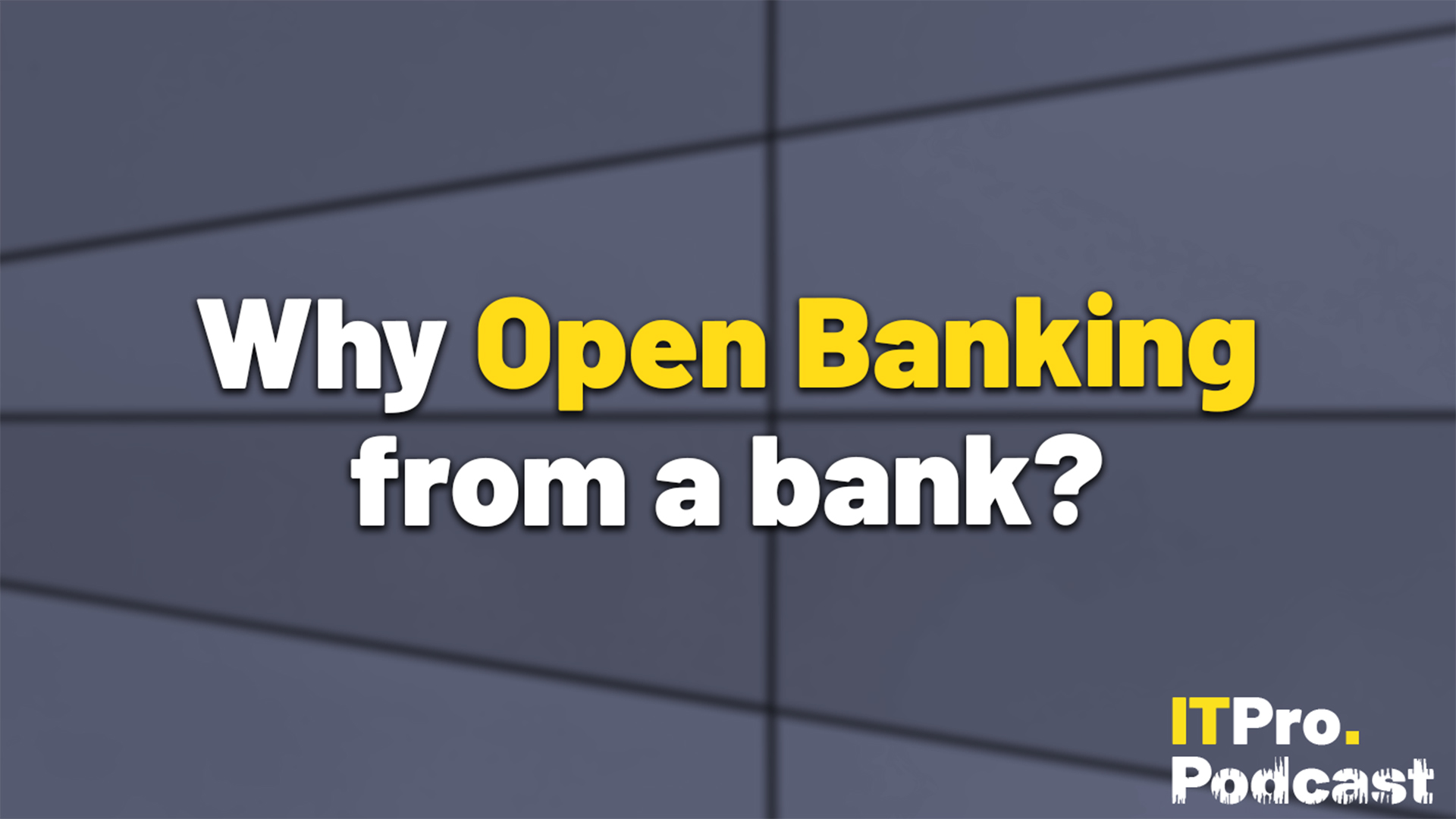Sponsored by NatWest
Why payment technology is crucial to digital transformation
Open Banking solutions like Payit™ by NatWest can play a crucial role in modernizing businesses’ financial operations and customer experience

Digital transformation is a priority for many businesses, and payment technology is at the forefront of this transformation. Payit™ by NatWest is one solution that can support businesses in modernizing their financial operations, enhancing efficiency, improving customer experience (CX), and ensuring security.
According to recent Natwest research, businesses using Open Banking technologies – of which Payit™ is one – save up to 150 hours annually on financial operations. Payment processing costs are also reduced by an average of 8% compared to traditional systems, according to the same study.
UK businesses are increasingly embracing Open Banking and benefiting from the operation and cost efficiencies it can bring. As time goes on and awareness increases, those banks that are already using open banking, such as NatWest, hope that adoption will steadily increase, too.
There are some stumbling blocks, however. The research has highlighted concerns around security and fraud, which could indicate a lack of understanding in how open banking works. If IT and business leaders are made aware of the fact that open banking is based on the security inherent in online or app-based bank accounts, this should reduce many of the non-technical barriers to entry.
It’s clear, then, that by using solutions like Payit™ by NatWest, organizations can revolutionize transaction processes, enhancing efficiency, security, and customer satisfaction for both businesses and their clients.
At Payit’s launch in 2020, Paul Thwaite, CEO of commercial banking at Natwest said: “As the largest supporter of UK businesses, we are thrilled to launch Payit™ by NatWest, allowing mid to larger businesses with an online presence to accept payments directly from their customers’ bank accounts in near real time, providing them with an effortless and safe payment experience.
“We are especially pleased to have used Open Banking technology to achieve this, allowing customers of the UK’s main banks to use this new payment option. Payit™ joins our growing portfolio of digital innovations for businesses, showing NatWest’s commitment to helping them thrive and achieve their potential.”
Automating financial operations for strategic growth
Advanced payment systems allow businesses to automate routine financial tasks, such as invoicing, reconciliation, and reporting, which frees up resources for more strategic initiatives. These technologies also enable seamless integration with other digital tools, creating a cohesive ecosystem that enhances overall business agility. By adopting innovative payment solutions, organizations can reduce operational costs, improve efficiency, and gain a competitive edge in a digital-first marketplace.
Payment technology also plays a crucial role in enhancing customer experience (CX). Modern solutions enable frictionless transactions, provide personalized financial services, and ensure greater transparency, all of which contribute to higher customer satisfaction and loyalty. As businesses continue to evolve, integrating advanced payment systems will be vital for achieving sustainable digital transformation and meeting rising customer expectations.
Key considerations for implementing payment technologies
Implementing advanced payment technologies, such as those enabled by Open Banking, can significantly improve efficiency and customer satisfaction. However, businesses must approach this transformation strategically, ensuring the technology aligns with their operational needs and growth plans. The first step is to assess your business needs and identify the specific areas where advanced payment solutions can create value. For instance, if your business handles a high volume of online transactions, adopting a system like Payit™ can streamline processes and reduce costs.
- Integration Challenges and solutions: Integrating new payment technologies with existing systems can be complex. Common challenges include compatibility with legacy systems, ensuring data security, and staff training. To overcome these issues, businesses should work closely with technology providers to ensure smooth integration. This may involve using APIs to connect new systems with existing software or investing in staff training to help teams adapt to new processes.
- Scalability and futureproofing: It’s essential to choose payment technologies that can grow with your business. Look for solutions that are scalable and can accommodate increasing transaction volumes or expanding business operations. Also, consider the adaptability of the technology to future developments, such as the introduction of new regulatory requirements or technological innovations like AI and machine learning.
Future trends in digital transformation through
The landscape of payment technology is rapidly evolving, with several key trends poised to shape the future of digital transformation in financial transactions. One such trend is the rise of Variable Recurring Payments (VRPs), which offer more flexible and dynamic payment options. VRPs are set to replace traditional direct debit and card-on-file payments by allowing consumers to authorize ongoing payments to a business within agreed parameters, making them ideal for subscription-based services.
There were 11.3 million open banking users in July 2024 (up 12% on June), according to Open Banking Ltd (OBL). Just shy of 20 million (19.54 million) payments were made during the month, with VRPs accounting for 2.45 million of them.
September also marked a milestone as the Competition and Markets Authority (CMA) has finalized the completion of the open banking roadmap.
“The CMA’s confirmation of the Roadmap’s full completion is a major achievement for open banking in the UK. I’d like to pay tribute to the banking providers who have successfully implemented the Roadmap, and the ecosystem and wider stakeholders for their hard work and collaboration that allowed us to reach this major milestone in a relatively short period of time,” said Marion King, Trustee and Chair of OBL.
“Thanks to their efforts, we are now able to move closer to a smart data economy in which we unlock the full potential of open banking for consumers and businesses alike.”
Another major development is the increasing integration of AI and machine learning into payment systems. AI can analyze transaction data to detect fraud, provide personalized financial advice, and improve customer service through chatbots and virtual assistants. As businesses adopt these technologies, payment systems will become more intuitive and responsive to user needs, driving further innovation in the sector.
The expansion of Open Banking services is also expected to continue, with new products and services being developed to enhance the way businesses and consumers interact with their financial institutions. As Open Banking evolves, we can expect to see more tailored financial products, greater transparency, and improved financial inclusion.
Disclaimer
You will need to sign up to Payit™ terms and conditions and you may need to hold an account with us. Your business must be based and trading in the UK with a turnover above £2M. You must be 18 years or older. Fees are based on the volume and average value of transactions.
Get the ITPro daily newsletter
Sign up today and you will receive a free copy of our Future Focus 2025 report - the leading guidance on AI, cybersecurity and other IT challenges as per 700+ senior executives
ITPro is a global business technology website providing the latest news, analysis, and business insight for IT decision-makers. Whether it's cyber security, cloud computing, IT infrastructure, or business strategy, we aim to equip leaders with the data they need to make informed IT investments.
For regular updates delivered to your inbox and social feeds, be sure to sign up to our daily newsletter and follow on us LinkedIn and Twitter.
-
 What are AISPs and how can they enable better online electronic transactions?
What are AISPs and how can they enable better online electronic transactions?AIS technology offers instant access to bank-verified data, simplifying transactions and enhancing data security
By ITPro
-
 How open banking is driving efficiency for finance teams
How open banking is driving efficiency for finance teamsOpen banking APIs make near-instant payments and real-time insights possible without sacrificing security
By ITPro
-
 Ease your data compliance headache with a modern payment system
Ease your data compliance headache with a modern payment systemRemoving the need to store bank account information for regular payments or refunds, firms can lean into open banking solutions like Payit™ by NatWest to greatly ease their compliance burden
By ITPro
-
 What is open banking?
What is open banking?Open banking empowers consumers to move money more flexibly, while giving fintech organizations the data needed to innovate in a crowded marketplace
By ITPro
-
 Why payment technology should be a key concern for all online businesses
Why payment technology should be a key concern for all online businessesWith cybersecurity threats rising, choosing the right technology could make the difference when avoiding disaster
By ITPro
-
 How APIs are transforming payment systems across the enterprise
How APIs are transforming payment systems across the enterpriseAPIs are becoming essential to the future of financial services, with efficiency gains and other benefits available to any company that makes the leap
By ITPro
-
 The customer knows best: How to ensure you’re delivering an effective digital payments experience
The customer knows best: How to ensure you’re delivering an effective digital payments experienceSponsored Tap into shifting customer trends with account information services that will give your business a competitive edge
By ITPro
-
 Why Open Banking from a bank?
Why Open Banking from a bank?Special Edition Harnessing the best of open banking allows enterprises to track spending in near real-time
By ITPro


